Management

- 40 vacancies
- Part Time Enrollment (Day Course)
- Duration: 4 years
- Reference curriculum
- Admission
- Fact Sheet
The Course
The undergraduate course in Management involves basic subjects such as mathematics, statistics, law, accounting, sociology, philosophy, psychology and ethics; more specific subjects such as production management and control, capital markets, financial mathematics, logistics, finance, information systems, human resources and marketing; and disciplines in areas related to economics, environment, business management, international trade, agribusiness and family farming.
Job opportunities
The Administrators are responsible for strategic planning and management routines of various types of organizations. They are professionals who develop projects, studies, audits and analyses for planning, control and coordination of activities in areas such as general management, entrepreneurship, corporate governance, strategy, human resources, management information systems, logistics, materials and supplies, finance, marketing, and industrial processes.
Esalq/USP Management graduates can be employed across all sectors, including all types and sizes of industries and service companies (trade, transportation, medical care, hospitality and sports), industrial-related entities, retail and wholesale business, foreign trade, non-governmental organizations (NGOs), government agencies, management consultancy enterprises, and financial institutions. In addition, Esalq/USP students can take advantage of courses focusing on the agribusiness field of specialization.
Agriculture
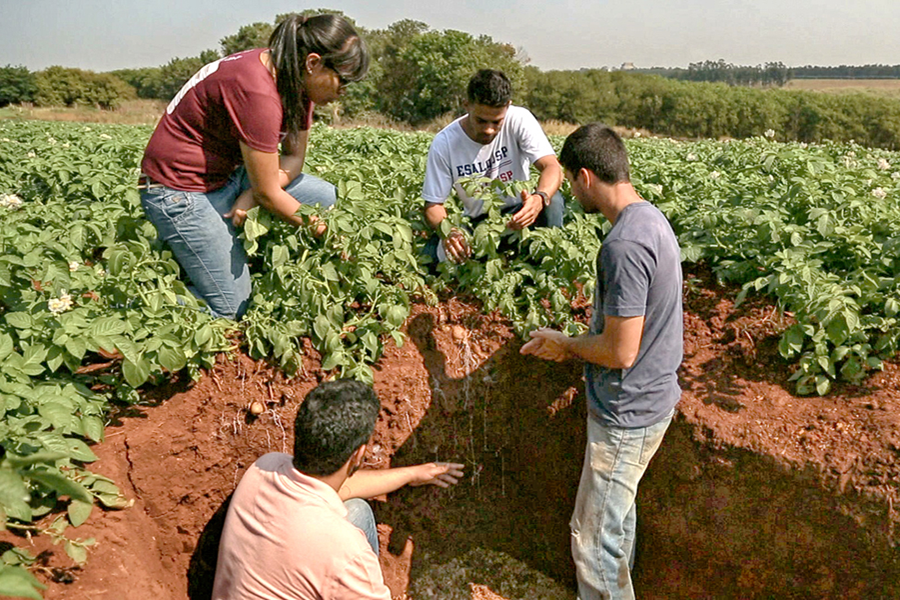
- 200 vacancies
- Fulltime Enrollment
- Duration: 5 years
- Reference curriculum
- Admission
- Fact Sheet
The Course
Agriculture involves the production and marketing of food, fiber and bio-based products (such as sugar, alcohol and gas from sugarcane). Bachelor’s candidates are involved with the sustainable production, processing and marketing of agricultural products and thus play an important role in the agribusiness world. During their program at Esalq/USP, students take several basic and applied courses, including molecular biology, precision agriculture, use of the irradiation for food preservation, biological disease and insect control, agribusiness administration and marketing, with solid background in plant and animal production systems.
Job opportunities
Job opportunities for bachelor’s degree recipients in Brazil are boundless due to the broad expertise held by recipients in all agribusiness fields and due to the country’s enormous potential in agriculture. Graduates from Esalq/USP are qualified to work both in private companies and governmental institutions, and can be directly or indirectly involved with all aspects of agriculture and agribusiness, such as:
- Planning and monitoring of crop and animal production systems;
- Management of the environmental and natural resources;
- Agribusiness;
- Agricultural engineering;
- Food science and technology;
- Post-harvest technology;
- Biotechnology.
Biological Sciences
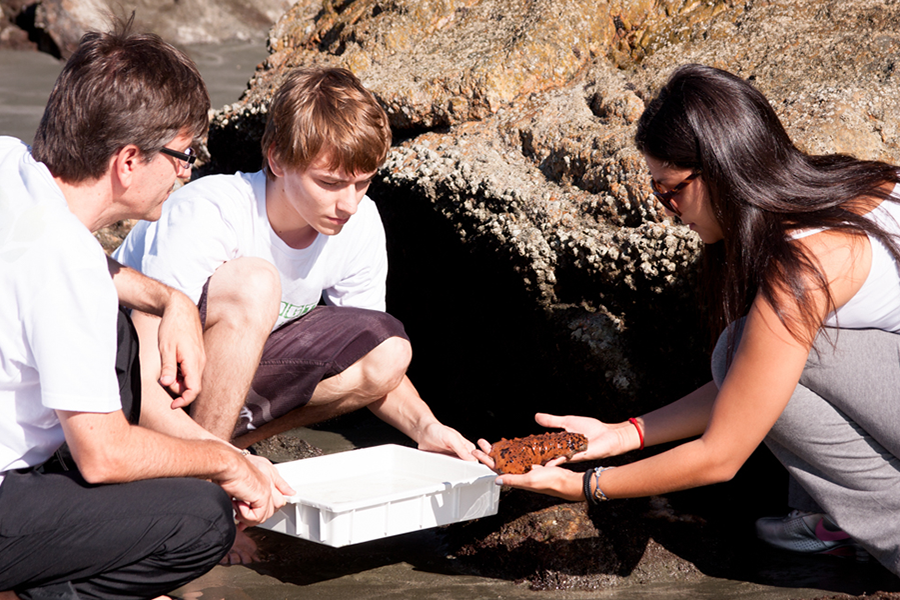
- 30 vacancies
- Part Time Enrollment (night course)
- Duration: 5 years
- Reference curriculum
- Admission
- Fact Sheet
The Course
Biologists graduating from Esalq/USP have a solid background in basic fields such as botany, cell biology, genetics, zoology, ecology, biochemistry and biophysics. A Bachelor’s certificate is also awarded when courses in education are included in the student curriculum.
Biologists are highly competitive in the job market in the specific areas of agricultural biology, biotechnology and wildlife management. The broad spectrum of study prepares biologists for an active professional participation in agriculture production and in biotic resources management.
Job opportunities
- Basic and applied research in different areas of the biological sciences;
- Development of education activities;
- Studies of biodiversity conservation;
- Organization, coordination and participation in multidisciplinary research groups and the sustainable use and recovery of natural resources in degraded areas;
- Management and execution of technical work in different areas of biology;
- Environmental consulting;
- Development of ideas and strategies to improve this professional field;
- Teaching in elementary and middle school and also undergraduate courses.
Economics

- 40 vacancies
- Part Time Enrollment (Day course)
- Duration: 4 years
- Reference curriculum
- Admission
- Fact Sheet
The Course
Esalq/USP’s undergraduate program in Economics aims to prepare a unique professional in this field. Beyond the ability to perform the tasks ordinarily expected from economists, Esalq/USP’s graduates have solid economic background to deal with specific economic problems related to agricultural production, processing, environmental issues and regional development.
Esalq/USP’s economists are prepared to handle complex problems related to various aspects of Agribusiness, a sector which represents over 30% of Brazil’s GDP (Gross Domestic Product). The course design incorporates sound theoretical and applied economic training and gives the students a solid education in quantitative and computational methods, principles of sustainable development and natural resources management.
Job opportunities
- Private companies involved in production, processing and services related to food and/or raw materials produced in agriculture;
- Banks and other financial institutions;
- Insurance, trading, brokerage, commodities and stocks exchanges companies;
- Federal, state or local government administration or institutions.
In these areas, economists from Esalq/USP will be able to work as analysts, consultants, specialists, managers of government and private companies.
Environmental Management
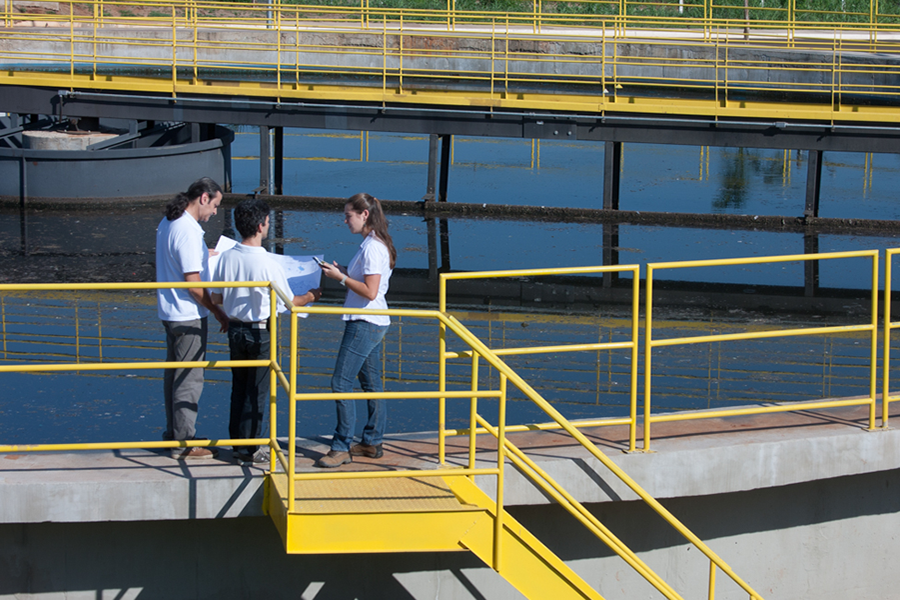
- 40 vacancies
- Part Time Enrollment (night course)
- Duration: 4 years
- Reference curriculum
- Admission
- Fact Sheet
The Course
This program aims to develop environmental managers who will be technically and scientifically prepared to plan and control human activities that affect the environment. Its curriculum encompasses subjects in Public and Private Enterprise administration as well as in the main ecological topics related to natural resources management and socio-economic aspects. The environmental manager should be capable of leading multidisciplinary, cross-functioning teams that perform in governmental structures, private enterprises and within NGO’s and conservation units that seek the improvement of environmental quality.
Job opportunities
Environmental Management graduates can work on all fields related to Environmental Management, such as private corporations, NGOs, public agencies, and institutions related to environmental issues as a result of their own activity (such as mining, chemical, steel, pulp).
Food Science
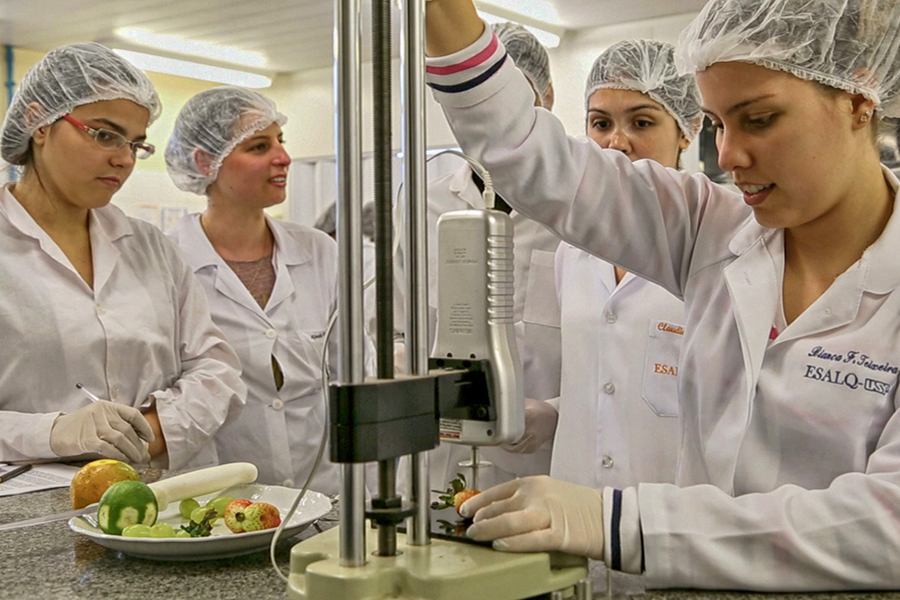
- 40 vacancies
- Fulltime Enrollment
- Duration: 4 years
- Reference curriculum
- Admission
- Fact Sheet
The Course
The Food Science program aims to prepare professionals for work in the food and nutrition field, providing critical knowledge regarding the social, economic, political and cultural status of the country.
A graduate’s abilities range from food processing and conservation, to agri-food industrial technology and nutrition. Knowledge in these areas is based on the study of raw material supply and intrinsic characteristics, food chain management, food system structures and sanitary food quality inspection.
Job opportunities
- Technical assistance for industries and food processors through consulting, quality control, marketing needs and product development;
- Industrial and commercial restaurant management;
- Food safety;
- Food service;
- Laboratories of quality control, microbiology and sensorial analysis;
- Management, good manufacturing practices;
- Research in food and nutrition sciences.
Forestry
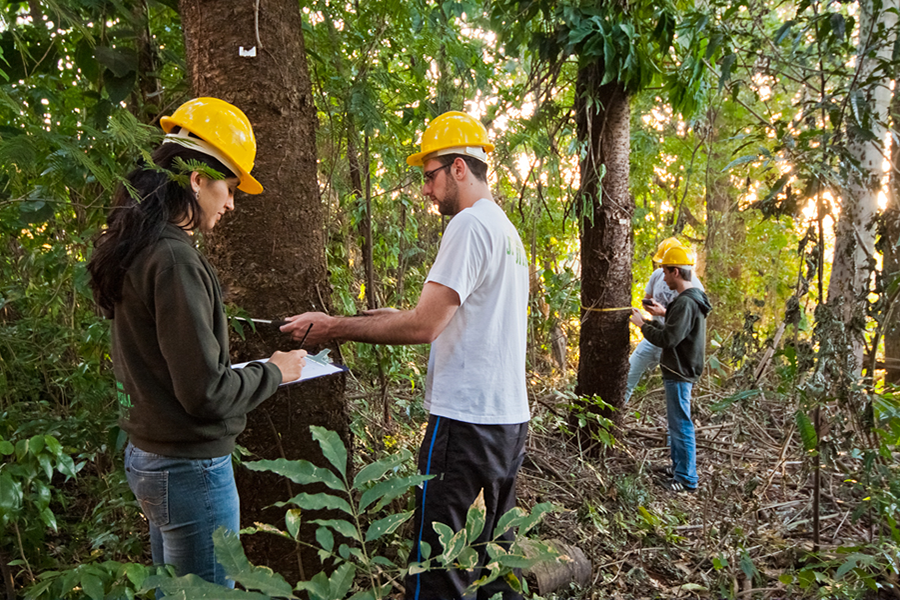
- 40 vacancies
- Fulltime Enrollment
- Duration: 5 years
- Reference curriculum
- Admission
- Fact Sheet
The Course
The Forestry undergraduate program at Esalq/USP provides students with the necessary skills to assess the biological potential of forest ecosystems, and to plan and implement sustainable management of natural and planted forests. Obtaining forest products, goods and services while improving, protecting and conserving ecosystems is the major goal of professional foresters. Knowledge is transferred to students in a holistic way, linking wood science and technology to the environment through forestry and forest science.
The program covers the following major areas:
- Silviculture and Forest Management
- Ecology and Nature Conservation
- Forest Products Technology
Job opportunities
- Forest companies;
- Non-governmental organizations;
- Environmental monitoring agencies;
- Education and research institutions;
- Consulting;
- Policy-maker agencies.

